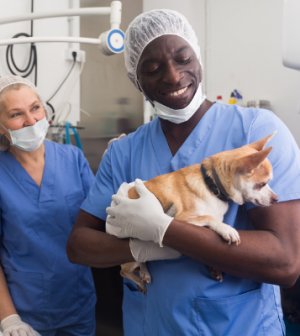As science continues, there’s more scrutiny of common practices that helps inform us about health and medicine. The best example we are all familiar with is recommendations for facial coverings in times like this, the COVID-19 pandemic. Wear them? Don’t? Wear two? Medical masks or simple fabric coverings? The best thing to do isn’t known until new science tests the old science and recommendations change (or don’t).
For years, veterinary health professionals have recommended neutering pets as early as is safe and responsible in an attempt to curb rising populations. It makes sense- if your animal isn’t going to be breeding and you don’t want it to, neuter it. New data suggests that practice is still pertinent, but not quite as simple and snip it and forget it.
A new article headline from the journal of the American Veterinary Medical Association (AVMA) reads: “When should we neuter dogs? It depends”
The opening of the article states, ” Earlier this year, the AVMA House of Delegates devoted a portion of its Veterinary Information Forum to this issue after two studies published in the journal Frontiers in Veterinary Science in July reported associations between neutering and higher rates of joint disorders and cancers in some mixed-breed dogs and dogs of particular breeds.”
The essence of the article is similar to the anecdote above about masks in a pandemic. “The relationship between sex hormones and canine health is not well understood. There is evidence that the hormones’ absence offers neutered dogs protection against certain diseases… But there is reason to suspect that absence may contribute to negative health outcomes as well.”
Eight out of ten household dogs are neutered or spayed and the recommendation will continue to be, if the animal is not meant to produce more animals in the future, neuter it. The timing of the procedure is what current science is exploring.
Consult your veterinarian and have one who stays abreast of research, especially on your animals’ breed. Neutering a toy breed canine can produce different long-and-short-term effects than neutering a large breed.
Dr. Benjamin Hart from the aforementioned article said that “Each individual animal must be considered, and veterinarians should inform the client about all the issues and let them make an informed decision about their pet.”
Like the headline from the AVMA said- it depends. Follow recommendations and pay attention to common practices when deciding when it’s safest to neuter pets.



















You must be logged in to post a comment Login